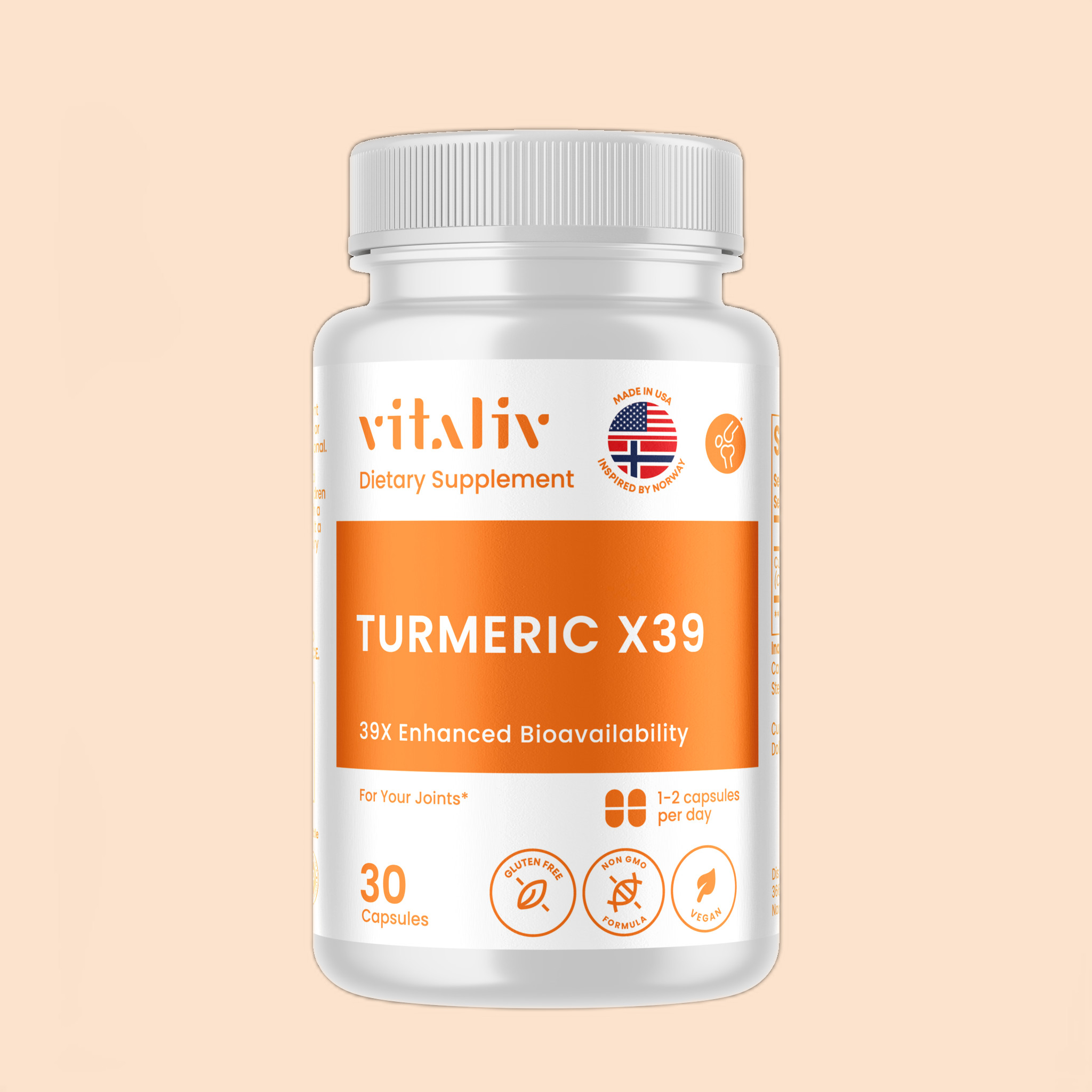Curcumin and Brain Health: Exploring the Connection
Curcumin, the active compound found in turmeric, has gained significant attention in recent years for its potential cognitive benefits. Many people are turning to curcumin supplements in the hopes of improving their brain health and cognitive function. In this article, we will delve into the connection between curcumin and brain health, exploring the science behind it and discussing the potential cognitive benefits. We will also provide practical tips on incorporating curcumin into a brain-healthy lifestyle.
Understanding Curcumin
Curcumin is a natural compound found in turmeric, a vibrant yellow spice commonly used in Indian cuisine. Turmeric has been used for centuries in traditional medicine for its various health benefits. It is known for its powerful anti-inflammatory and antioxidant properties, which contribute to its potential brain health benefits.
Product Spotlight
Aggregate Rating
Our Rating
Turmeric X39 is a breakthrough for joint health. With its powerful Curcugen formula, it offers maximum absorption, relieves joint inflammation, supports healthy joints and cartilage, boosts the immune system, and provides antioxidant support. Say goodbye to joint discomfort and embrace vitality!
The Active Compounds in Curcumin
Curcumin contains several active compounds that contribute to its potential brain health benefits. These compounds include:
-
Curcuminoids: Curcumin is the most well-known curcuminoid and is responsible for many of turmeric’s health benefits. It has been shown to have strong antioxidant and anti-inflammatory effects, which can help protect the brain from oxidative stress and inflammation.
-
Turmerones: Turmerones are another group of compounds found in turmeric. They have been found to promote the growth of new brain cells and enhance brain function.
-
Ar-turmerone: Ar-turmerone is a specific type of turmerone that has been shown to have neuroprotective properties. It can help protect the brain from damage and support overall brain health.
The Science Behind Curcumin and Brain Health
Numerous studies have explored the effects of curcumin on cognitive function and brain health. These studies have provided valuable insights into the potential benefits of curcumin for the brain.
Studies on Cognitive Function
-
A study published in the Journal of Psychopharmacology found that curcumin supplementation improved working memory and attention in healthy older adults.
-
Another study published in the American Journal of Geriatric Psychiatry showed that curcumin supplementation led to improvements in mood and memory in individuals with mild age-related memory loss.
-
Research published in the Journal of Clinical Psychopharmacology found that curcumin supplementation improved cognitive function and reduced symptoms of depression in individuals with major depressive disorder.
Mechanisms of Action
The exact mechanisms through which curcumin exerts its brain health benefits are still being studied. However, several potential mechanisms have been proposed:
-
Antioxidant Activity: Curcumin has strong antioxidant properties, which can help protect the brain from oxidative stress and damage caused by free radicals.
-
Anti-Inflammatory Effects: Chronic inflammation has been linked to cognitive decline and neurodegenerative diseases. Curcumin’s anti-inflammatory effects may help reduce inflammation in the brain and support overall brain health.
-
Neurogenesis: Curcumin has been found to promote the growth of new brain cells, a process known as neurogenesis. This can help enhance brain function and improve cognitive abilities.
Potential Cognitive Benefits of Curcumin
Taking curcumin supplements may offer a range of cognitive benefits. Here are some potential benefits that individuals may experience:
-
Improved Memory: Curcumin has been shown to enhance memory and improve cognitive function. It may help with memory retention and recall, making it beneficial for individuals experiencing age-related memory decline or memory-related conditions.
-
Increased Focus and Attention: Curcumin supplementation has been associated with improved focus and attention. It may help individuals stay more alert and focused, enhancing productivity and cognitive performance.
-
Enhanced Mood: Curcumin has been found to have mood-boosting effects. It may help reduce symptoms of depression and anxiety, promoting a positive mood and overall well-being.
Best Practices for Taking Curcumin Supplements
When incorporating curcumin supplements into your wellness routine, it is important to follow best practices to ensure optimal results and minimize potential side effects.
Dosage and Frequency
-
The optimal dosage of curcumin supplements can vary depending on the individual and their specific health goals. It is recommended to start with a lower dosage and gradually increase if needed.
-
The bioavailability of curcumin is relatively low, meaning that the body has difficulty absorbing and utilizing it. To enhance absorption, it is often recommended to take curcumin supplements with a source of fat, such as black pepper or a meal containing healthy fats.
-
It is important to follow the recommended dosage instructions provided by the manufacturer or consult with a healthcare professional for personalized guidance.
Potential Side Effects
Curcumin supplements are generally considered safe for most individuals when taken in recommended dosages. However, some people may experience mild side effects, such as:
- Upset stomach
- Diarrhea
- Nausea
If you experience any severe or persistent side effects, it is important to discontinue use and consult with a healthcare professional.
Incorporating Curcumin into a Brain-Healthy Lifestyle
In addition to taking curcumin supplements, there are other lifestyle factors that can support brain health and cognitive function. Here are some practical tips:
-
Eat a Brain-Healthy Diet: Incorporate curcumin-rich foods, such as turmeric, into your diet. Other brain-healthy foods include fatty fish, berries, leafy greens, nuts, and seeds.
-
Stay Physically Active: Regular exercise has been shown to have numerous benefits for brain health. Aim for at least 150 minutes of moderate-intensity aerobic activity per week, along with strength training exercises.
-
Manage Stress: Chronic stress can have negative effects on the brain. Practice stress management techniques, such as mindfulness meditation, deep breathing exercises, or engaging in hobbies that help you relax and unwind.
-
Get Adequate Sleep: Quality sleep is essential for brain health and cognitive function. Aim for 7-9 hours of uninterrupted sleep per night.
In conclusion, curcumin shows promise in supporting brain health and cognitive function. While more research is needed to fully understand its mechanisms and effects, the existing studies suggest that curcumin supplementation may offer cognitive benefits. By incorporating curcumin into a brain-healthy lifestyle, individuals may enhance their overall brain function and well-being.
References:

